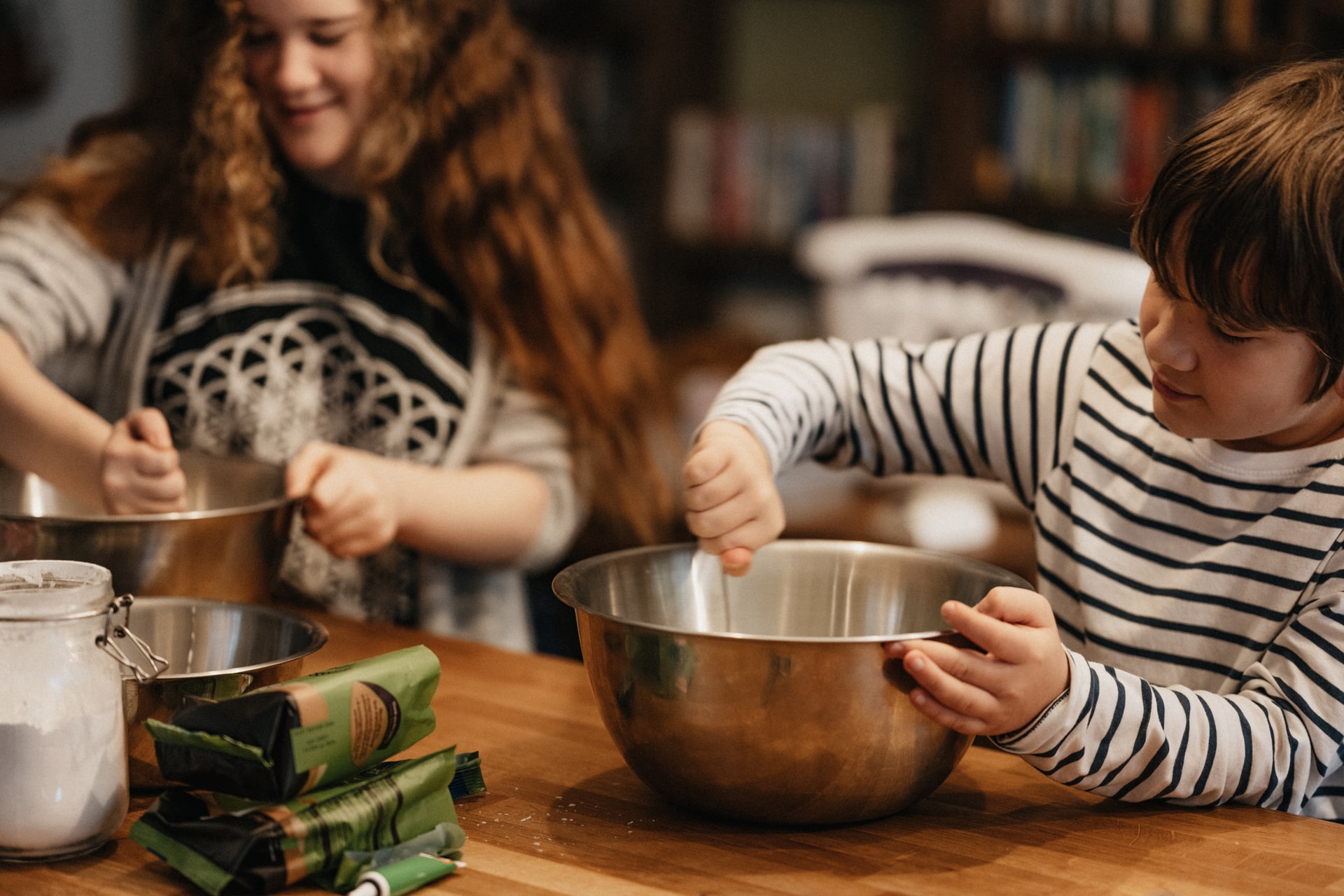15 Aug Beyond the cake bake – how children raise money in schools
In recent years the Great British Bake Off has inspired many of us to get our aprons on and our rolling pins out, and this is definitely a Good Thing. As someone who spends their time encouraging children to grow and cook their own food, I’m really pleased to see how enthusiastic children are about baking. But there can’t be many parents of primary school children who haven’t secretly groaned at least once when that slip of paper comes home from school bearing the words “School Cake Bake” for the fifth time in an academic year.
How children raise money in schools
There’s nothing inherently wrong with a school cake bake. Brits love cakes – we love making them, we certainly love eating them and no one really resents buying them. Yes, sometimes it’s a bit irksome to spend £3 on ingredients, rush-cook a batch in between preparing dinner and getting everyone off to bed, and then send your children off next day with their heaving cake tin plus a couple of quid in their pocket to buy almost identical cakes made by someone else’s harassed mother. I know lots of parents who would, given the choice, rather pay the school £25 at the beginning of the year and not have to take part in all the baking and sponsoring and constant costume making. I am secretly one of them (don’t tell my kids). But we do it, because we all recognise that learning about money and participating in the generation of funds for their community is an important part of our children’s education and that sometimes the process itself can be a lot of fun for them, even when it isn’t always for us.
But is this narrow experience of fundraising really teaching them a very useful lesson about money OR community? Ask an average 8 year old how you can make some money and they’ll say “make a lemonade stand” because they’ve seen it on the ubiquitous American kids TV shows on 24-hour rotation. Explain that we don’t really sell a lot of homemade lemonade in the UK, and their next answer will generally be “set up a cake stall”. And it’s not just the kids who fall back on this easy favourite – schools (and PTAs) do too. Next up in the PTA arsenal is the non-uniform day with a fine of £1 for wearing a costume for which many busy working parents will have shelled out close to a tenner in local charity shops and costume shops at short notice. And then finally the sponsored something – in our school usually a run, walk or skip (they no longer attempt the silence because it’s a hiding to nowhere). I’m not knocking these ideas, they’re all great fun, it’s just their monopoly of the money raising imagination that I think is unhelpful.
Advance into your teens and start looking for ways to supplement your pocket money, and you’ll find out that being able to ask your mom to bake a cake, knowing how to dress up in peculiar clothes or asking someone to pay you to hop round a field is not going to get you a very steady income. If you can do your own cake baking you may, granted, bring in a few quid, but if every one of our teenagers tries to fund their iPhone apps through selling muffins, we’ll have a cake mountain to rival anything the EU could produce.
Kids can do more than just sell stuff to raise money
It’s not just the narrow view of “money = sell stuff” that is the problem. It also teaches children that their local community is only there to a) sell stuff to; b) occasionally donate stuff to and; c) pester for sponsorship. It doesn’t teach them that they themselves have a role to play in DOING something for their community, whether for money or not.
My local school’s new Head Teacher is looking to change this very narrow view of how to raise money. He says that over the years at different schools he has noticed that children find it very hard to get past “setting up a stall” as an answer for how to raise money. Offering a much-needed service for a small fee (or donation) rarely occurs to them. Perhaps this is in part a result of the demise of the Bob A Job of our own youth because of safety concerns about children going door to door. When we were younger our first response to the same question of how we could raise money might have been mowing lawns, washing cars or sweeping up driveways to raise money.
I’d love to see young people helping older people with gardening, housework and shopping – one side gets to retain their independence for longer and the other gets to learn life skills they will need when they leave home as well as earning a little money. It is also a way to break down barriers between generations. Does this require more initial input from a parent (or teacher) than donating a bottle of wine to a raffle? Probably, and I’m not saying it could work for everyone. It is no doubt a reflection of the changes in society as a whole that we now automatically consider what we can buy or sell, rather than what we can usefully provide with our time and elbow grease.
Families are time poor. Safety concerns about stranger danger are rampant, and it’s usually much more practical to just buy something than to try to provide a service. But just because it can’t work for everyone, doesn’t mean we should write it out of our children’s money-raising vocabulary. Being able to identify a need for a service and how to fill it is a critical skill for future business leaders, and many children could really benefit from this being modelled in their early years.
A more sustainable future
We live in a world which bases the rise and fall of national economies on how much stuff we buy. We all know it’s not sustainable, the planet literally can’t survive us just buying new stuff and chucking the old stuff away ad infinitum and there is a groundswell of rebellion against this world view, not least because of the global downturn. But it’s not only the ethical campaigners who are rebelling – some of the best new entrepreneurs are basing their success on providing genuinely useful services, knowledge or skills to clients, not just flogging stuff.
If we are to equip our children for the future, perhaps we need to teach them to sell (or donate) their time, expertise, attention and skills as well as merchandise. Role models like the ones in the Clever Tykes books can show children how many ways there are to be useful in the world (including making things) and how to get paid for that usefulness, whether you keep the money or donate it. And parents and schools need to think laterally about how a child’s experience of fundraising in school can equip them to contribute to society and their own independence when they grow up.
What do you think? What ideas has YOUR children’s school used to bring in cash for good causes? And what lessons do you think your children have learned from taking part?
Joanne Roach is the owner of www.thefoodies.org which encourages very young children to grow, cook and eat their way to an interesting and healthy life . She has two children, aged 9 and 11.





